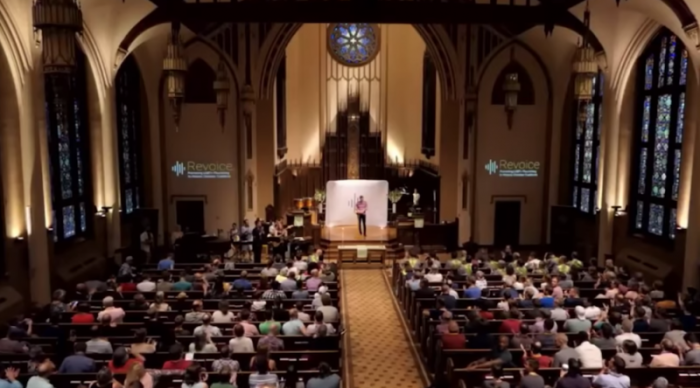Revoice Conference Didn't Add Anything New to 'Gay Christian' Debate, Says So. Baptist Leader

A prominent Southern Baptist theology professor believes the much talked about Revoice Conference did not contribute anything truly new to the debate on celibate gay Christianity.
"For my part, I don't think anything new has been added to our knowledge about the celibate gay identity movement that we didn't already know," said Denny Burk, president of the Council on Biblical Manhood and Womanhood. "In short, the conference was of a piece with what has come before in books and articles and other conferences. Perhaps the only new wrinkle is the involvement of a PCA church and the questions that raises for that denomination."
Last month, Memorial Presbyterian Church of St. Louis, Missouri, hosted the Revoice Conference, which was centered on Christians who identified as LGBT but also sought to adhere to traditional church teaching on sexual ethics.
Revoice garnered controversy in evangelical circles over some of the rhetoric and claims. Most recently, prominent Southern Baptist leader Al Mohler called the event a "halfway house" between evangelical Christianity and the LGBT culture. He denounced the language (i.e. LGBT Christians) used at the event that implied "that Christians can be identified in an ongoing manner with a sexual identity that is contrary to Scripture."
Burk, who did not attend the conference but did watch videos and read transcripts from the event, noted that he was surprised that the event garnered so much controversy since the debate over "the celibate gay identity movement has been going on for years."
"Both in print and online, the controversy was joined years ago about sin, temptation, desire, concupiscence, etc. And yet, it has been a controversy largely ignored by many evangelicals," stated Burk.
"That's why I couldn't have predicted that a conference featuring speakers whose views have been widely known for years would somehow change evangelical indifference about problems within the celibate gay identity movement."
Burk also outlined what he liked and disliked about Revoice.
The theology professor said he was "moved" by many presenters speaking of the pain they experienced over this issue.
"I noticed on social media that some attendees were expressing thankfulness just to be around other people who have been through the same struggles they have been through. There were many expressions of sadness from the podium about churches that have not treated them well," he said.
"This made me grieve. It underlined one of the big reasons why this controversy is so difficult. This stuff is really personal, and churches really have dropped the ball in many ways.
"Even though I have strong disagreements with the celibate gay identity movement, I grieve their suffering on this point and want to do my part in my own church to make sure that past errors aren't repeated. I also wish to reiterate, in spite of our disagreements, I really do celebrate their expressed commitment to celibacy outside of marriage."
Ray Low is a gay pastor who spoke at Revoice about the challenges he had in finding work in the church because of his sexual orientation.
During his remarks, Low talked about how even though he accepts that homosexuality is a sin and marriage should only be between a man and a woman, he still experienced much rejection when looking for a position as a pastor.
Low noted that when asked by prospective churches to explain his walk of faith, he would talk about how his faith influenced how he dealt with his sexual orientation.
"Every time I shared, I could see the gears turning in their heads. I could feel their opinion changing of me as I went from being a young energetic and outgoing candidate to becoming a danger in their eyes," he explained.
"I had one interview with a church that lasted no longer than 15 minutes before I was told that I was not a good fit, which is the most diplomatic way the church likes to put it. And I had somebody tell me in another church that, on paper, I was the perfect candidate, but my sexuality made it difficult for them to hire me."
Wesley Hill, associate professor of New Testament at the Trinity School for Ministry based in Ambridge, Pennsylvania, was one of the keynote speakers who defended the event.
In an interview with The Christian Post last month, Hill said he was "deeply saddened" by the controversy over Revoice, believing that the criticism fails to focus on the fact that Revoice is centered on "a sizable, vocal group of LGBT people who want to try to live inside the traditional Scriptural view of marriage and sexuality."
"Whatever disagreements other conservatives may have with us, surely that should be celebrated as a striking instance of radical discipleship," Hill told CP.
As for his concerns regarding the conference, Burk found "troubling" the warnings made by at least two speakers against the "idolatry" of the nuclear family.
While admitting that people can make an idol out of anything, including family, he added, "It is not idolatry to honor and to esteem conjugal marriage and the children that such marriages produce ... Honoring conjugal marriage as the normative ideal is not idolatry. I am not sure this was clear in the warnings I heard from the podium at Revoice."




























